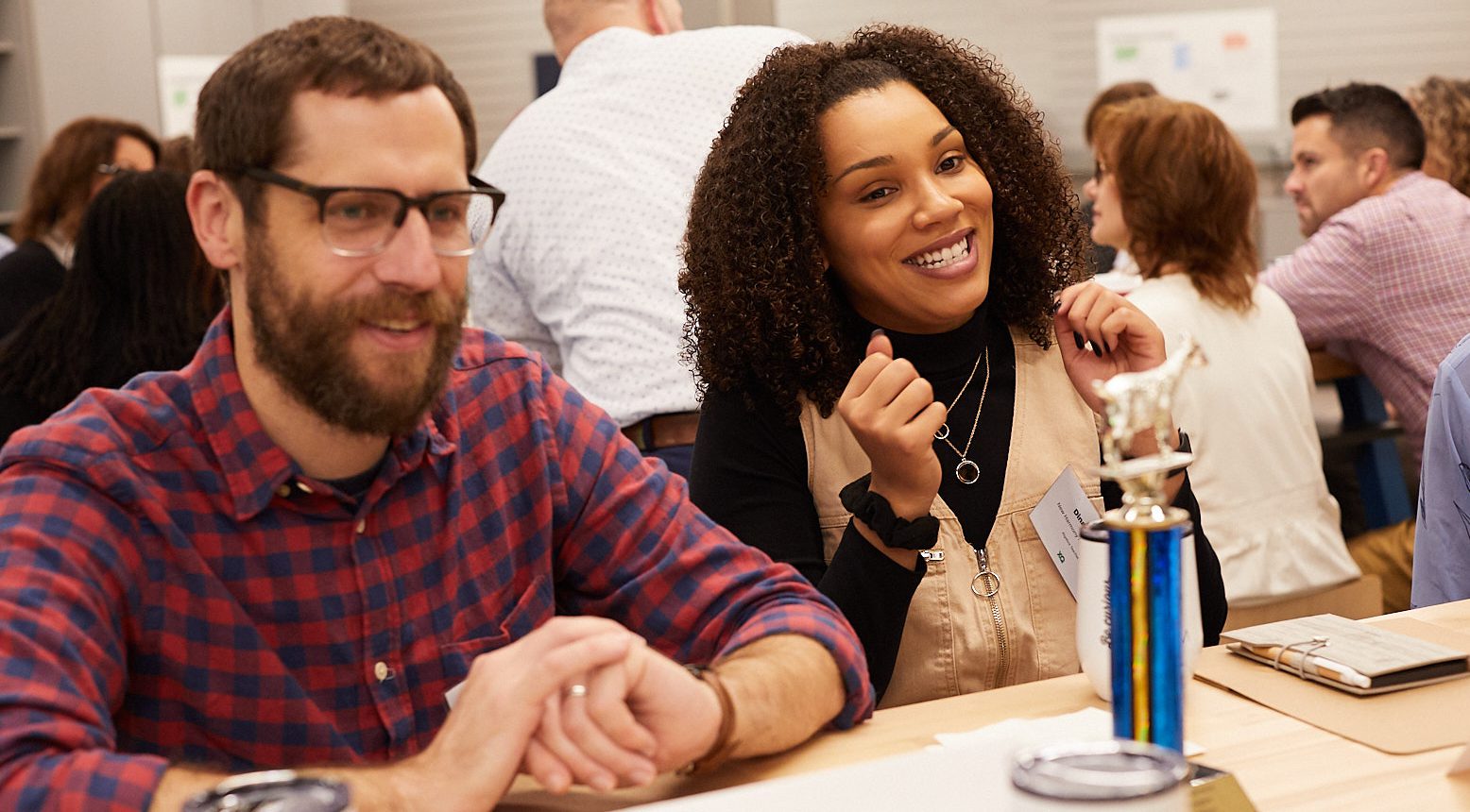Relationships and reflection are key drivers of growth and success, and are both something XQ has invested in from the beginning. We are on a mission to transform high schools across America, high schools where communities leverage their deep knowledge and expertise to help students realize their full potential.
So how do we do it? For starters, by investing in people, building community, and cultivating the space to reflect on this critical work in real-time. Early on, schools within the XQ cohort signaled a deep desire the connect meaningfully as a community. This is where our Community of Practice, or CoP, comes in.
So what is a Community of Practice?
One of the clearest definitions of a community of practice comes from Etienne and Beverly Wenger-Trayner, who helped articulate the concept in 1991:
Communities of practice are groups of people who share a concern or a passion for something they do and learn how to do it better as they interact regularly.
Motivations for convening a community of practice are many, but at the most fundamental level, a group of people come together driven by a shared learning need. By engaging each other over time in collective learning, they develop a bond that in turn fuels the production of resources to influence their own practices.
The combination of a shared field/area of expertise, community, and practice lie at the heart of a community of practice.
Why the Community of Practice matters – to XQ and the broader education community
The community of practice is a pillar of XQ’s work and within the education community as a whole. It allows a committed, motivated group of individuals to build community and resources.
At XQ, we define our community of practice as “a diverse group of people who model vulnerability, share values and language, develop trust, and reflect with a goal of building effective and empowering high schools.”
Throughout the year, we convene an intimate group of school leaders from our cohort of XQ schools to learn from one another, challenge each other, and continue to improve our capacities and build community—all towards the goal of rethinking high school across America.
By engaging in peer-to-peer learning, school leaders are able to strengthen the implementation of their school designs and the XQ Design Principles all in the context of a visit to an XQ school. Communities of practice are crucial throughout the education community as we tackle some of the most important challenges facing society.
How to run your own Community of Practice
Designing your own community of practice is an exciting step towards growth, innovation, and deeper learning – whatever your shared learning need happens to be.
Here are some helpful steps towards creating your own community of practice:
- Articulate a clear, shared-learning need
- Identify other people working towards a similar mission
- Gather with one another, in person or virtually
- Collectively create a shared vision, definition and set of norms for your community of practice
- Be open to continuous improvement and evolving to meet the needs of your community
Lessons Learned
The XQ community of practice has been crucial in the continued growth of the schools and school leaders across the cohort, as well as for XQ’s understanding of the stakes in transforming high school across America.
Here are a few key lessons we’ve learned throughout the years:
- The XQ Design Principles help professionals connect across differing practices and unique designs
- Focus on the quality of the content and programming; Less is more; Depth over breadth.
- Creating action steps based on the visit cements take-aways
- Time for reflection and team planning is critical
XQ’s commitment to the mission and values behind our community of practice has only strengthened our work. We hope this might spark your own interest in building a community of practice, or implementing some of the strategies above.
Email danielle@xqinstitute.org with any questions, and share on social by tagging @XQAmerica and #ReThinkHighSchool.
TAGS:



 Tweet
Tweet 



